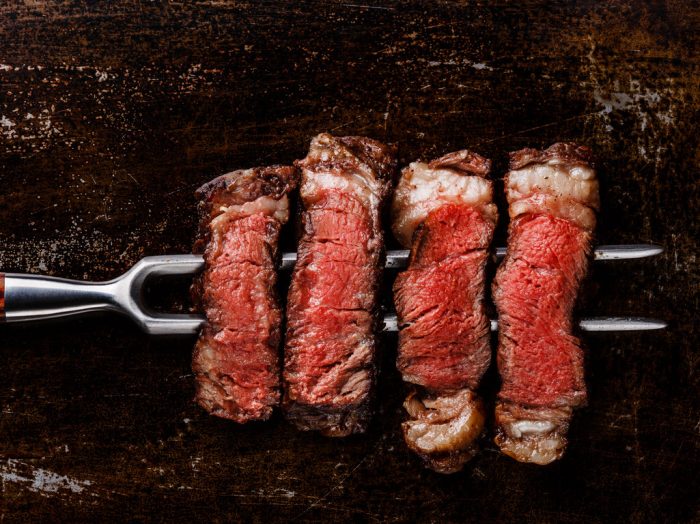Healthy eating shouldn’t be torture. You can integrate this practice into your lifestyle if you follow some simple principles – let’s not call them rules! Principle no. 1: Eat more fruit and vegetables. Watch out for the others!
What you eat is what you are. Well, let’s not exaggerate with that. Even if it’s true that the way you eat affects your health and life expectancy. So, let’s talk about healthy eating!
First of all, we have to say that eating healthy doesn’t have to be a torture. If you are concerned about this, you have to know that eating healthy must be a behavior, a lifestyle.
10 things to watch out for when you’re concerned about healthy eating
1. More fruit and vegetables
Eat fruit and vegetables every day. You should eat them raw or cooked. If you can, avoid canned fruit and vegetables.
Fruit and vegetables are important for your healthy eating plan because they are full of vitamins, minerals, and fiber. Usually, they are low in calories and fats. Fruits are high in sugar; that’s why it’s better to eat them mostly in the morning.
Variety matters! To enjoy their benefits, eat many types of fruit and vegetables.
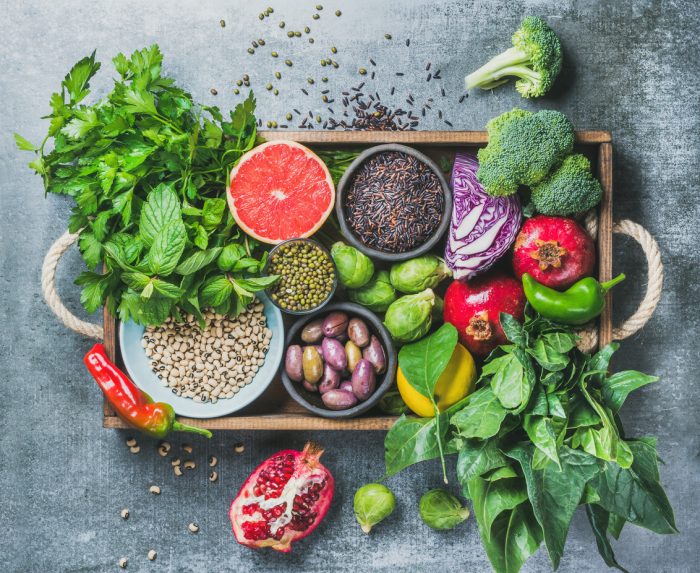
2. More whole grains
Grains are full of fiber that helps with digestion. And, because digestion has an important role in your overall health, you should include more whole grains in your meals.
Why should you eat whole grains instead of refined grains? Whole grains contain the entire grain, and that means that your body will benefit from all of its proprieties. That doesn’t mean that you have to go on a field and eat whole wheat. You can eat bread or pasta made with plain wheat, rice, oats, corn, buckwheat, or other cereal flours.
Many whole grains are good sources of dietary fiber. Including them in your meals may help improve blood cholesterol levels, and lower the risk of heart disease, stroke, obesity, and type 2 diabetes. Furthermore, dietary fiber can make you feel full so that you can eat fewer calories a day.
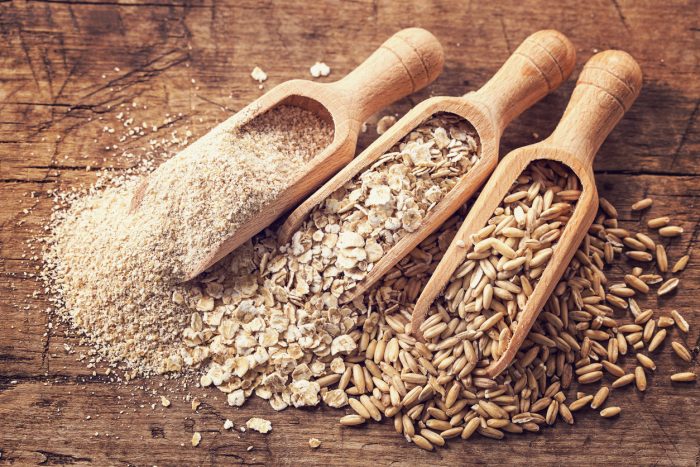
3. Less Meat
Who doesn’t like a nice steak for dinner? Or a hamburger when you’re on holiday? You don’t have to quit all the things you like, but when embracing healthy eating as a lifestyle, maybe you should consider eating less meat, especially red meat.
You can improve your health by cutting down your meat intake; at least that’s what the majority of studies on nutrition recommend. Consumed in large quantities, meat is responsible for causing certain diseases; that is why we recommend not having it every day. The best way of doing that is having at least one meat-free day once a week; that should give you a chance to try out some vegetarian recipes.

4. Less trans fats and saturated fats
Artificial trans fats are created in industrial processes by adding hydrogen to liquid vegetable oil to make it more solid. Most processed foods use trans fats; luckily you can look for them on food labels like “partially hydrogenated oils”. Why avoid them? Because trans fats raise your bad (LDL) cholesterol levels.
Saturated fats are found mainly in red meat, poultry, and full-fat dairy products; that is why The American Heart Association recommends aiming for no more than 6 percent of calories from saturated fats.

5. Sugar. Avoid it as much as you can
First of all, sugar is addictive, that’s the main reason so many people consume it regularly. When consuming sugar, the body releases dopamine into the brain, creating that feeling of pleasure. Studies conducted on rats/mice have clearly pointed out that sugar can act as an addictive substance. Even if this is harder to prove on human subjects, people consume sugar and sugary junk foods in a pattern that matches the consumption of addictive compounds.
You should consider lowering your sugar intake. That doesn’t mean quitting desserts; instead, try to make desserts using natural sweeteners, like raw honey, maple syrup or stevia. If you feel adventurous and want to go raw vegan, you can make deserts using dates or figs for sweetness.

6. Water instead of sugary drinks
Water is good for you, and sugar isn’t; that’s why you should avoid sugary drinks like soda, energy drinks and sports drinks that are just filled with added sugar and calories. Try drinking plain water instead, or just add some lemon or other fresh fruit for more flavor.

7. Cut back sodium and salt in foods
Table salt is sodium chloride, and having too much in your system makes you retain water; that puts an extra burden on your heart and blood vessels, causing high blood pressure, which you definitely don’t want.
The best way to reduce sodium is to avoid processed foods, which tend to be high in sodium. Also, avoid adding extra table salt to foods, and use herbs and spices to add flavor to them. At the same time, don’t eat canned vegetables too often, because they have a lot of salt. It’s simple, just read the labels!
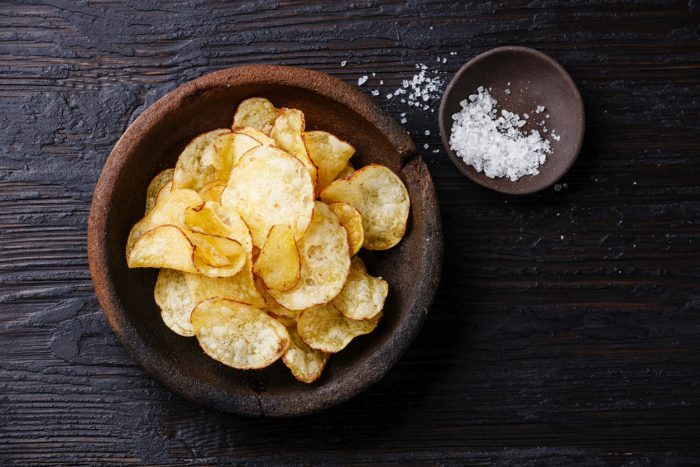
8. No processed foods
We are talking about chemically processed foods. Why avoid them? Because, usually, processed foods are high in sugar, high in sodium, contain all sort of artificial ingredients, and they are very low in nutrients. Basically, processed food is junk food. So you have no reason to eat it, but the taste. But, hey, that taste is a lie. You should consider eating real food!
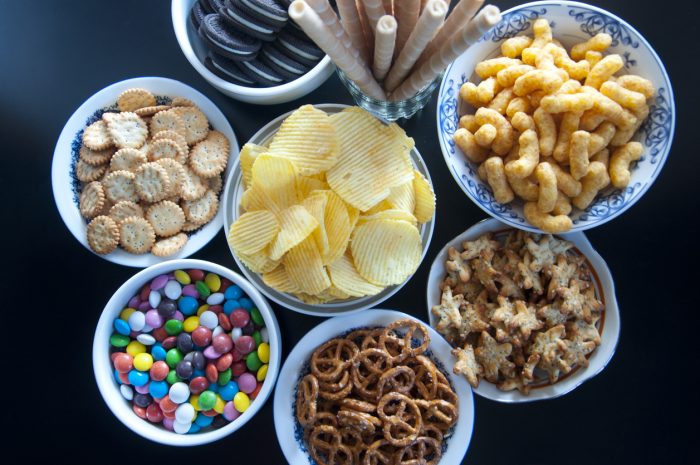
9. Eat as much as you need
The American Heart Association recommends a healthy dietary pattern that includes fruit, vegetables, whole grains, beans, legumes, fish, skinless poultry, nuts, and fat-free/low-fat dairy products, and limits sodium, saturated fat, red meat and added sugars.
Depending on her activity level, an adult woman should eat 1.800 – 2.200 calories a day. On the other hand, a man can eat 2.200 calories to 3.000 calories depending on his activity level. But you don’t need to count your calorie intake every day. All you have to do is choose small plates so that you won’t be tempted to eat more than you need to feel full. And don’t eat after you’re feeling full!
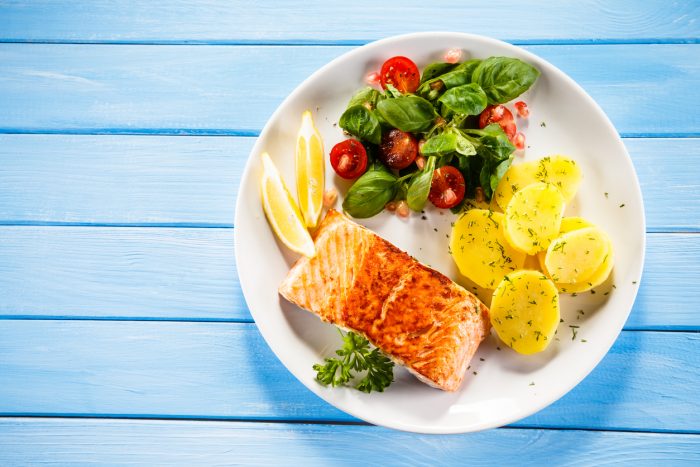
10. Cook at home
This one may be the most important tip for healthy eating. Cooking at home, in your kitchen, with real ingredients. It will help you eat healthier, and it will also make you feel better. Also, cooking and spending time in the kitchen with your family can have a therapeutic effect. Talk to your family about food, go to the market or store together, choose colored fruit and fresh vegetables, learn how to cook them in a healthy and tasty way. At the end of the day, you’ll feel rewarded for your effort.






